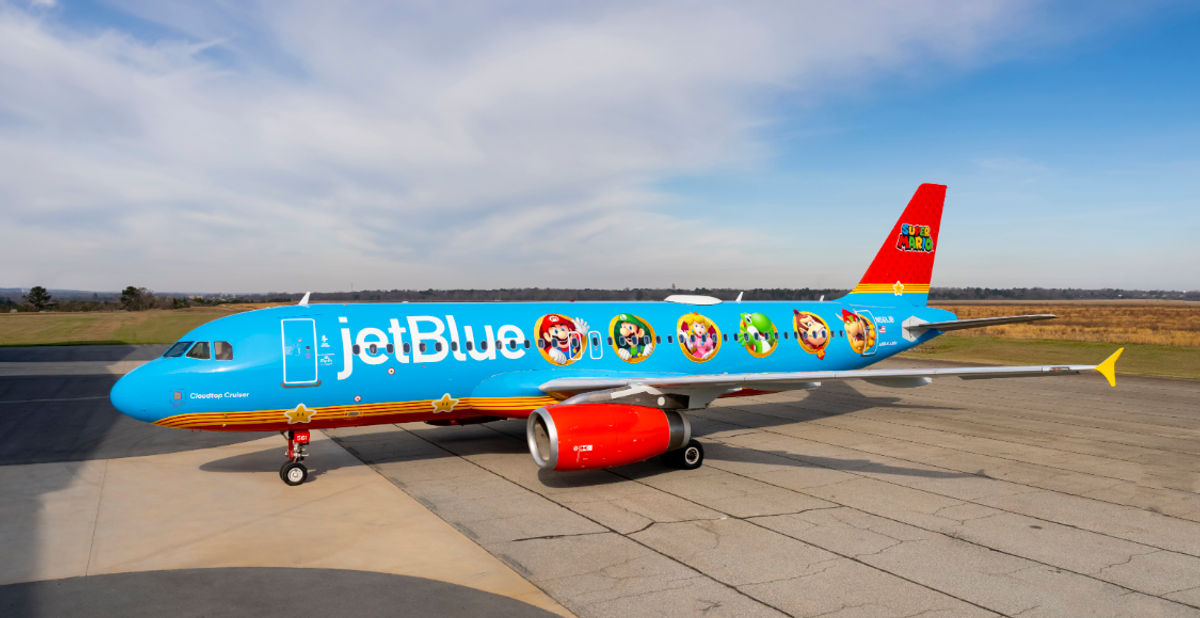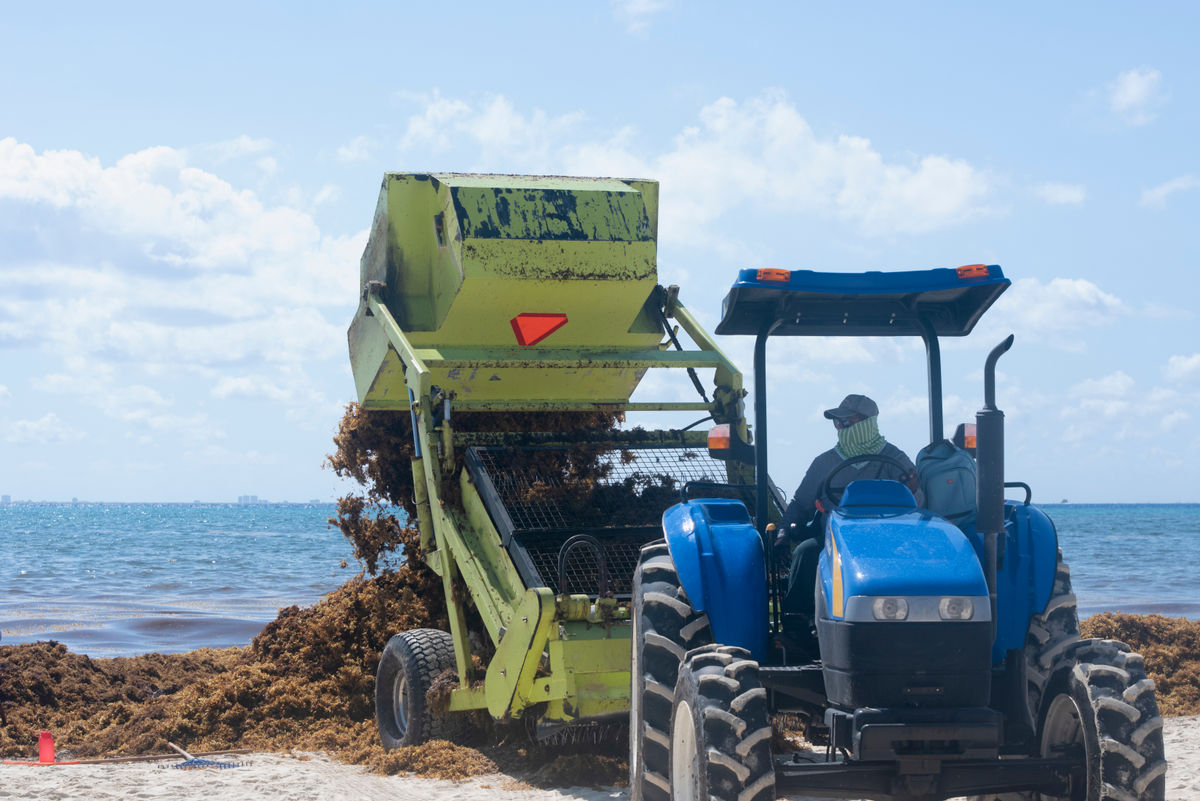by Mia Taylor
Last updated: 2:45 PM ET, Tue April 15, 2025
It's been a gloomy few weeks of news for the travel industry with major airlines cutting profit forecasts, international travelers avoiding the United States, and American travelers scaling back or scrapping travel plans altogether amid the turmoil triggered by the Trump Administration.
Yet another industry report has just been released underscoring the less-than-ideal reality unfolding amid the new presidential administration's destabilizing tariff policies and polarizing rhetoric.
Global Rescue, a medical, security, evacuation and travel risk management services provider, says travelers are now "bracing for rising costs and rethinking their plans in response to recent U.S. policy developments and economic uncertainties."
This assessment is based on the company's Spring 2025 Traveler Sentiment and Safety Survey, which found that 83 percent of travelers who participated in the survey expect travel costs to rise due to recent U.S. policy initiatives, with nearly half (47 percent) saying travel costs will "definitely" increase and another 36 percent responding "probably."
"Travelers are clearly feeling the impact of evolving U.S. policies," says Dan Richards, CEO of The Global Rescue Companies and a U.S. Travel and Tourism Advisory Board member at the U.S. Department of Commerce.
"From anticipated cost hikes to shifting itineraries and delayed plans, U.S. policy and economic signals are shaping traveler behavior and decisions for the rest of 2025," Richards added.
The same survey indicates that while economic uncertainty is factoring into the decisions of some Americans, it is not necessarily stopping travel altogether.
Similar to other recent industry reports on the topic, the Global Rescue survey reveals a degree of resilience among American travelers.
For instance, nearly 65 percent of the survey's respondents said they have not canceled or postponed an international trip due to concerns about a possible recession. Similarly, 31 percent have not altered domestic travel plans, despite headlines warning of economic slowdown.
However, more than half of travelers (55 percent) are changing which countries they visit and 34 percent are postponing international travel due to international policy shifts.
"People may be modifying their destinations or delaying departures, but they are still prioritizing travel, especially internationally," Richards said.
Also worth noting, the survey found that about one in four (24 percent) U.S. respondents are not planning to travel internationally in 2025.
While it's not clear exactly why some travelers are forgoing international trips, there's been recent media reports of rising anti-American sentiment being expressed toward U.S. travelers abroad due to unpopular Trump Administration policies.
"With nearly half of travelers altering their destinations in response to U.S. international policies, the ripple effects of government decisions are clear," Richards said.
"As a member of the U.S. Travel and Tourism Advisory Board, I see the need for balanced policy approaches that support international trade and diplomacy without inadvertently deterring global mobility or discouraging tourism," Richards added.
Growing Concern Among Travelers
The Global Rescue survey is merely one of many recent indicators that the mood of travelers is shifting somewhat amid the increasingly fraught and unstable U.S. landscape. Travel agencies, tour companies and travel insurance providers are also witnessing the fallout.
Sanjay Nair, co-founder of Safari Lab, a wildlife travel company that curates safari experiences across India and Africa, says the jitters of American travelers are beginning to impact the company's bookings.
"This season alone, we've experienced two cancellations from U.S.-based travelers who were at the final stages of confirming their trips to the Maasai Mara for the Great Migration—one of our most sought-after departures," Nair told TravelPulse. "Both cited the current economic climate as the reason for stepping back."
In recent weeks, Safari Lab has also witnessed a shift in trip preferences: Many travelers are inquiring about shorter itineraries, are trimming the number of days they will be on safari, or are choosing more budget-friendly lodges over luxury camps.
Overall, says Nair, there's a noticeable hesitancy among travelers to commit to long-haul, high-value travel, even for experiences a consumer has been planning for years.
"While inquiries are still coming in, more travelers are now asking for flexible cancellation policies and holding off on final payments until the last possible moment," continues Nair. "There's a clear sense of financial restraint and uncertainty, especially when it comes to discretionary, international travel."
Travelers do indeed appear to be at least somewhat worried about what the future holds. According to Faye Travel Insurance, the number one travel insurance add-on that globetrotters are purchasing right now is Cancel for Any Reason (CFAR) protection.
This type of coverage enables travelers to cancel a trip for literally any reason and recoup up to 75 percent of the non-refundable trip costs.
"When comparing CFAR purchases for this summer's trips to last year, it appears that demand for this additional layer of coverage for the upcoming season is on track to surpass last year's figures," Daniel Green, co-founder and CTO of Faye Travel Insurance, told TravelPulse.
"Overall, since a new administration took office this year, there's been an increase in travel insurance purchases, of on average 15 percent month over month," Green added.
The increased desire for more travel insurance protection among consumers could be due to overall global volatility and international tensions, surmises Green, as well as uncertainty about one's finances, such as job security.
"This suggests travelers are looking for more peace of mind, and flexibility, when planning their trips," Green explains.
Casey Halloran, CEO and co-founder of Costa Rican Vacations offers another example of how traveler anxiety is materializing.
He has noticed two distinct trends emerging in recent weeks among prospective travelers: a longer booking funnel and travelers ultimately not booking at all because they're "worried."
The company's prospective travelers are taking far more time then usual to make final decisions about booking a trip. Halloran says the final booking timeline has increased by 20 percent over the past 30 days.
Moreover, the number of travelers who ultimately decide not to book at all because they're worried is steadily ticking upward. While this trend hasn't reached the levels that Halloran experienced amid the pandemic meltdown, the steady drumbeat of travelers expressing anxiety and concerns and then opting not to book is troubling.
"We're hoping this too shall pass, but for now, we are definitely feeling the headwinds of market turmoil and its impact on consumer confidence," Halloran told TravelPulse.
As an agency, Halloran says it's easier for his company, which was founded in 1999, to adjust to such highs and lows. But for hotels and tour operators, these dips in demand can be devastating.
"I do worry for our suppliers and hope that they've also saved for a rainy day," says Halloran.
Nair of Safari Lab expressed similar sentiments, noting the many downstream ramifications of fewer travelers.
"As a company that supports on-the-ground conservation efforts and local livelihoods through tourism, this slowdown has deeper implications," he says. "Fewer bookings don't just affect operators—they impact wildlife guides, camp staff, and entire ecosystems that rely on responsible travel."
For the latest travel news, updates and deals, subscribe to the daily TravelPulse newsletter.
.png)
.png) 21 hours ago
1
21 hours ago
1









 English (US) ·
English (US) ·  Spanish (ES) ·
Spanish (ES) ·